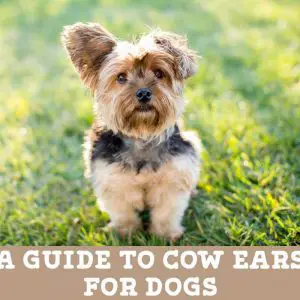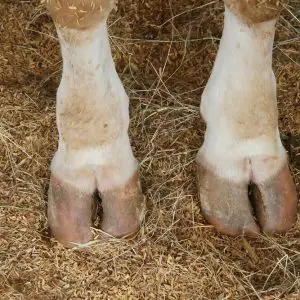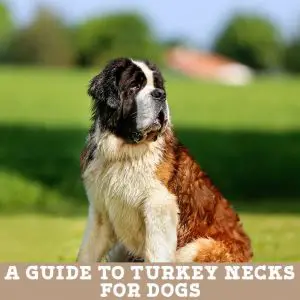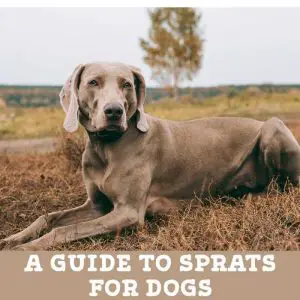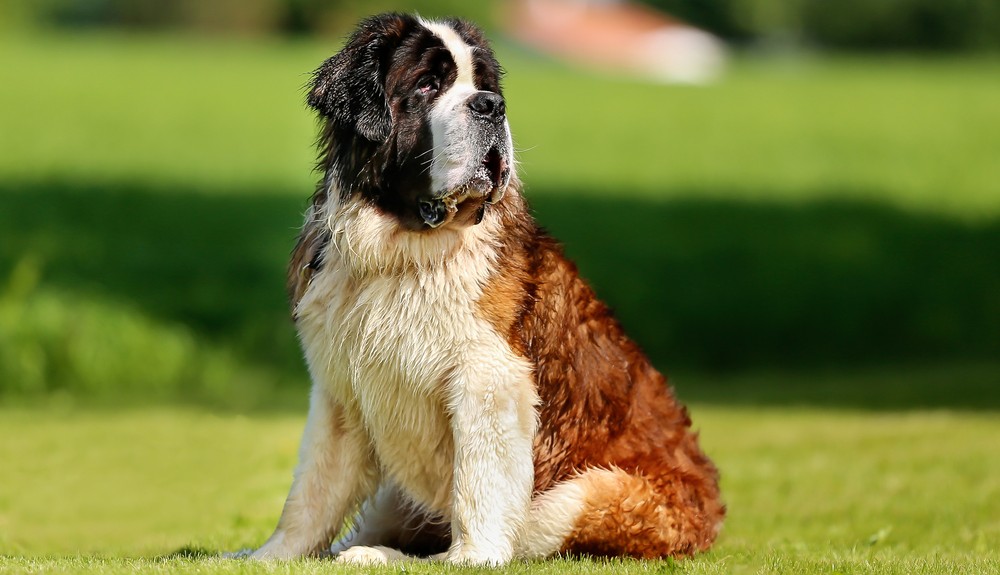
Turkey necks for dogs have become a popular chew, with many pet owners choosing to feed them as a treat or part of a raw diet. So, what are turkey necks? What are the benefits of feeding them and are they safe for dogs?
This article will help you to understand the pros and cons of feeding turkey necks so you can make an informed decision before choosing to feed them to your dog.
Key facts
Turkey Necks are available raw or dehydrated (air-dried).
Turkey Necks provide excellent mental stimulation through chewing and may also help with dental health.
Turkey Necks are moderate to high in calories and should be fed occasionally as a treat.
There are several risks associated with feeding Turkey Necks including bacterial contamination, intestinal blockages, constipation, and choking.
Turkey necks are a by-product of the meat industry, where welfare standards may vary so try to buy free-range products with animal welfare accreditation (RSPCA, Red Tractor, Soil Association).
Alternatives to turkey necks are VOHC accepted dental chews, bully sticks, and chicken necks.
What Are Turkey Necks?
As the name suggests, turkey necks refer to the entire neck of the turkey, without the head, skin, or crop (a muscular pouch that stores food). The neck contains the spine (including the bones or vertebrae), the trachea (windpipe), muscle, and connective tissue.
Turkey necks can measure up to 10-12 inches or so in length, are larger than both duck and chicken necks, and may be better suited to medium, large, or giant breed dogs.
Provenance
There are five countries responsible for 80% of turkey meat production across the EU — the UK, Germany, France, Italy, and Poland. Turkey meat produced in the UK, including turkey necks, is usually clearly labelled or can be easily traced to its source. Turkey necks are considered a by-product of the poultry meat industry and are not intended for human consumption.
When purchasing turkey necks or turkey meat products, try to look out for farms that are free-range with a high standard of animal welfare. These products will have received accreditations from organisations like the RSPCA, Red Tractor and the Soil Association, meaning they meet strict farming and animal welfare standards.
Preparation
There are two main types of turkey necks available as treats for dogs, dehydrated and raw. Dehydrated turkey neck products are usually slowly air-dried, but make sure to check the processing method before you buy. Products that have been dried at high temperatures should be avoided as this can make the bones more brittle and prone to shattering, risking serious injury to your dog’s mouth, throat, and gut. Dehydrated turkey necks can be purchased both from pet stores and online retailers.
Raw turkey necks are available fresh or frozen from butchers, supermarkets, and even online from raw pet food websites. As with any raw meat product, it’s essential to follow strict hygiene and food safety practices. Fresh turkey necks should only be fed raw and never cooked, as cooking increases the risk of the bones shattering and can cause serious injury, as previously discussed.
RAW FEEDING
Did you know?
Some pet owners choose to feed raw turkey necks to their dogs as treats or as part of a raw diet. This article is not designed to discuss raw feeding in-depth, only the use of these products as an occasional treat.
However, pet owners that choose to feed raw need to be aware of the risk of contamination with harmful bacteria such as Salmonella and E.coli. E.coli has been linked to severe illness and even death in humans, and immunocompromised family members and children are considered to be at higher risk.
The following links contain more information on raw food safety and answers to frequently asked questions about raw feeding dogs.
Benefits of Turkey Necks for Dogs
Key benefits
Cleans Teeth
Encourage chewing may help remove plaque and tartar.
Mental Enrichment
Provides mental stimulation and may help relieve stress.
Cleans Teeth
The belief that chews like turkey necks help to keep our pup’s teeth clean is just one of the reasons these treats are so popular. Certainly, the action of chewing something hard may help to reduce plaque and tartar, however, there aren’t currently any studies that prove these benefits. So, though they may be of some benefit in helping to keep your dog’s teeth clean, turkey necks should not replace routine dental care and regular vet checks. Any possible benefits would also be reduced in dogs that swallow these treats quickly, with little chewing!
Mental Enrichment
Chewing is a natural behaviour for dogs and is both fun and stimulating for your pup. Providing an appropriate item for your dog to chew on also helps keep them away from inappropriate objects, like your shoes! Chewing can also help reduce boredom and is even believed to relieve stress. Turkey necks generally last for around 20-30 minutes, but may be less if your pup is a speedy chewer!
Joint Health
The cartilage and connective tissue found in natural chews, like turkey necks, contains chondroitin and glucosamine, the building blocks of cartilage. These ingredients are commonly found in supplements designed to promote joint health in dogs with osteoarthritis.
Though these ingredients may have a positive effect, there is currently no evidence available to determine the quantities present in turkey necks and whether this is clinically beneficial to dogs with joint disease. If your dog is suffering from joint problems, they require a diagnosis and treatment plan from a veterinarian.
Nutritional Information for Turkey Necks
Nutrition
Note: Nutritional analysis will vary slightly between products, individual batches, and will depend on the preserving method used.
Protein & Fat
Turkey necks are high in protein which is essential for muscle development, healthy skin and coat, and the production of hormones and enzymes – just to name a few of its many functions! Growing puppies naturally have a higher requirement for protein than adult dogs, though highly active dogs may also benefit from extra protein in their diet. Whilst most healthy dogs will tolerate high protein treats, they are best avoided in dogs with underlying kidney or liver disease.
Turkey necks are also relatively high in fat which can be an excellent source of energy, especially for active dogs. Fat also helps to absorb and utilise fat-soluble vitamins and is a source of essential fatty acids which contribute to healthy skin and coat and reduce inflammation. Turkey necks and other high fat treats should be avoided in overweight dogs or those with pancreatitis, diabetes or gastrointestinal problems.
Vitamins, Minerals & Compounds
Vitamins, Minerals & Compounds
Turkey necks contain calcium and phosphorus which are essential structural components of teeth and bones. Calcium is also responsible for many other vital bodily functions including hormone secretion, muscle contractions, and normal constriction and dilation of blood vessels. Turkey necks also contain high levels of B vitamins, especially vitamin B12, which is involved in the production of essential proteins and red blood cells and is also required for the reaction of several enzymes.
They also contain essential trace minerals such as iron, copper, selenium, and zinc. Zinc supports a healthy immune system and is important for maintaining healthy skin and coat. Copper aids the absorption of iron, both of which are essential for normal red blood cell function. Selenium is an antioxidant that also plays a role in thyroid function and metabolism, as well as the production of DNA. Selenium may also play a protective role in helping to prevent certain types of cancer, with preliminary studies suggesting some benefit in cases of canine prostate cancer.
Because turkey necks contain connective tissue and cartilage, they will also contain glucosamine and chondroitin, the building blocks that make up healthy cartilage. Supplementation with glucosamine and chondroitin has been clinically proven to reduce the impact of osteoarthritis in affected dogs, however, their levels cannot be accurately established in turkey necks and other natural chews. If your pup is suffering from osteoarthritis, joint supplements with an established therapeutic dose of these ingredients is a better option. Joint problems including osteoarthritis need to be correctly diagnosed by a veterinarian who will then recommend a suitable treatment plan.
Calories
Only Feed Occasionally
Turkey necks are moderate to high in calories, with dehydrated chews higher in calories per kilogram than fresh turkey necks. Expect approximately 130 calories per dehydrated turkey neck chew, which for reference would be nearly 25% of the expected daily calorie requirement for a 30lb dog!
Feeding Guide
Due to their moderate to high calorie content, turkey necks should only be given as an occasional treat to avoid unwanted weight gain. Feeding one dehydrated turkey neck 1 to 2 times a week is more than enough for a medium-sized dog. Turkey necks should not replace a complete and balanced diet and are best avoided in overweight dogs. If your dog has any underlying health issues like pancreatitis, diabetes, or kidney disease, it’s always best to speak to a veterinarian before changing their diet or adding in new treats.
Downsides & Risks of Turkey Necks for Dogs
Risk of Harmful Bacteria
Turkey necks, even when dehydrated, carry the risk of contamination with harmful bacteria such as Salmonella and E.coli. Safe food hygiene practices, such as careful cleaning of surfaces and handwashing after handling these products are essential. Turkey necks, like any product containing bone, are also a potential choking hazard and may cause other complications including constipation and intestinal blockages.
Bacterial contamination (including Salmonella and E.coli)
Raw meat and bones may be contaminated with harmful bacteria such as Salmonella and E.Coli that can cause illness in dogs, particularly if they have an underlying illness or are immunocompromised (e.g. undergoing chemotherapy). Air-dried treats, like dehydrated turkey necks, still risk contamination with these bacteria.
Even if your dog does not show any signs of illness, bacterial infection can still be transmitted to humans during close contact. Young children, the elderly, and immunocompromised family members are at higher risk of becoming ill. If your pup or your family is considered high-risk, it might be best to avoid feeding turkey necks and look for other alternatives instead.
Otherwise, make sure to follow strict food hygiene practices including washing your hands regularly after handling treats and petting your dog.
Choking
Turkey necks contain small pieces of bone which are a possible choking hazard in dogs. Though turkey neck bones tend to be softer and crumble when chewed properly, some dogs will gulp them down quickly and have even been known to swallow them whole!
If a large piece is swallowed it could become stuck in the oesophagus on the way down to the stomach, or even lodged at the back of the throat. If a small piece of bone makes its way into the trachea (windpipe) this is an emergency as your dog will struggle to breathe. This is an important reason why your pup should be supervised closely when eating any type of chewable treat.
Choosing the right size chew to suit your dog can also help reduce risk, with turkey necks being better suited to medium, large, or giant breed dogs.
Constipation and obstruction
Poorly digested bone fragments can cause constipation in dogs which may vary from mild to severe. In severe cases, evacuation may be required and your vet will need to perform an enema under general anaesthetic.
Sharp bone fragments can also cause trauma to the intestines and gastrointestinal tract and even life-threatening perforation, which is why cooked bones should never be fed to dogs as they are more likely to splinter.
In some cases, large pieces of bone may also cause a blockage (obstruction) in the stomach or intestines. This is considered an emergency and requires urgent surgery to remove the obstruction.
Avoid If…
- Your dog is overweight as turkey necks are moderate to high in calories. If you think your dog may be overweight, please consult your veterinarian for a weight loss plan.
- Your dog has an underlying illness such as pancreatitis or is currently receiving chemotherapy unless your veterinarian has advised otherwise.
- Your dog has an allergy or sensitivity to turkey products.
Turkey Necks for Puppies

Turkey necks are not suitable for puppies due to their large size and high quantities of bone. Growing puppies have very strict requirements for calcium and phosphorus and should be fed a high-quality commercial diet that meets these standards. Adding in treats containing bone risks unbalancing this important ratio and puts your pup at risk of developing problems bone and joint problems. Turkey necks are also a choking hazard for puppies that may struggle to chew them and are best fed to adult dogs.
Alternatives to Turkey Necks
- Chicken necks: If you have a small-breed dog, these treats offer similar benefits to turkey necks but are smaller in size.
- Dental chews: If keeping your pup’s teeth is your primary concern, the Veterinary Oral Health Council (VHOC) has an accepted list of products that have been proven to reduce plaque and tartar. Most of these products are traditional commercial dental chews that are less smelly and messy than natural bone and meat products.
- Bully sticks: These treats offer plenty of chewing time and are an excellent source of enrichment and stimulation for your pup. However, they are high in calories and should be fed only occasionally. They also carry the same risk of bacterial contamination as turkey necks.
FAQs
Turkey necks may offer some dental health benefits and provide mental enrichment when your dog chews. However, they are moderate-high in calories and do carry a risk of choking and other complications.
Feeding turkey necks is still controversial and there are many different opinions even amongst the veterinary community as to the safety of feeding turkey necks. Risks to your dog’s health include choking, constipation, intestinal obstruction, and bacterial contamination. Always supervise your dog carefully when feeding turkey necks.
Turkey necks are moderate to high in calories and one neck twice a week is plenty for a healthy medium-sized dog. Due to their higher calorie count, turkey necks are best avoided in overweight or obese dogs.
Products containing bone, like turkey necks, can potentially cause an intestinal obstruction or blockage if a large piece is swallowed. They can also become lodged at the back of the throat or in the oesophagus.
Like most natural meat products turkey necks do have an odour, though many pet owners report the smell to be quite mild. Turkey necks carry the risk of bacterial contamination and any surfaces should be cleaned carefully after contact, making them less ideal to feed inside the home.
Turkey necks can be frozen until ready to use and then should be thawed in a container before feeding. Frozen turkey necks are extremely hard and may risk tooth damage.
Turkey necks should only be fed raw or air-dried. Bones cooked at high temperatures are more likely to splinter and cause trauma to your dog’s mouth and gut.
Lean well-cooked turkey meat that doesn’t contain any bones or skin is usually safe to feed to most dogs in small quantities as a treat.




